Chia seeds are very small but highly nutritious and good for your health. These seeds are rich in antioxidants, fiber, minerals, and other beneficial plant compounds that have been linked to several health benefits.
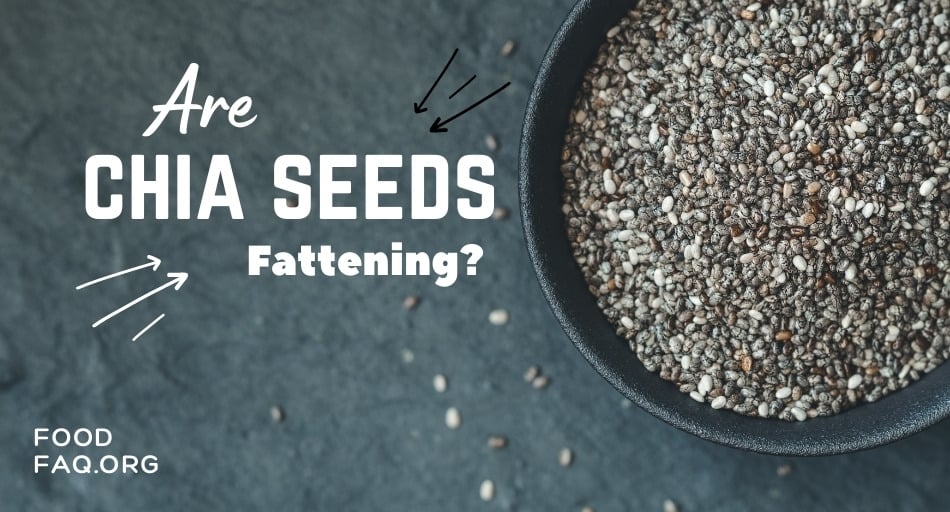
But if you’re following a diet aimed at weight loss, you have to be careful about the foods you consume and their caloric content.
So, should you include chia seeds on a low-calorie diet?
Table of Contents
Are chia seeds fattening?
Chia seeds aren’t fattening and can even help you lose weight. They aren’t very low in calories, but the ones they do contain come from healthy fats, protein, and carbs, which all contribute to your overall health as well as weight loss.
In addition, chia seeds are very rich in various minerals and antioxidants, so eating them can help you in many more health aspects than just losing weight.
How many calories are in chia seeds?
A one-ounce (two tablespoons) serving of chia seeds contains 137 calories. This isn’t very low, but people don’t eat chia seeds by tablespoons.
Most often, chia seeds are mixed with water and turned into chia pudding. Other people add them to acai bowls, smoothies, and freshly squeezed juices, which means that they’re less likely to take in too many calories from them.
Chia seeds are also very filling, so the calories you’re taking from them help you feel satisfied after eating.
Chia seeds are also loaded with fiber. The same one-ounce serving provides you with 42% of your daily recommended need for this nutrient.
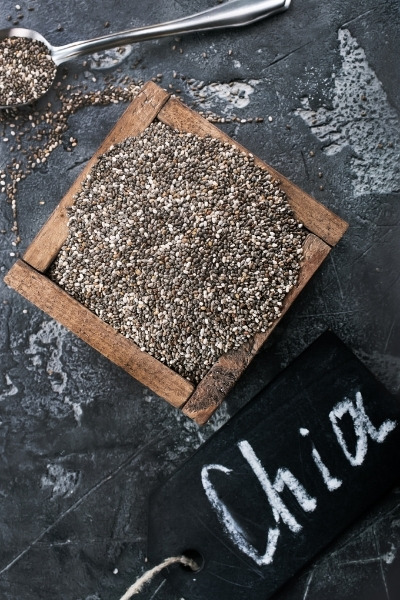
Fiber is essential for the health of your digestive system, and it also contributes to healthy weight loss.
This is because fiber helps you stay full after eating and curbs your appetite. So, adding some chia seeds to your smoothies, juices, or other dishes can help you with weight management.
Are chia seeds good for you?
Chia seeds are very nutritionally balanced, as they provide you with calories from fats, carbohydrates, and protein.
Most of them come from healthy fats that can help protect your cardiovascular system and reduce the risk of heart disease.
In addition, these healthy fats, called omega-3 fatty acids, help lower the levels of ‘bad’ cholesterol in your blood, preventing heart attacks and strokes.
These small seeds are also loaded with antioxidants. These plant compounds flush out free radicals from your body, reducing oxidative stress and damage to your cells.
This prevents various chronic health issues, such as cancer, diabetes, and heart disease. In addition, free radical damage increases the risk of premature aging and reduces inflammation in your body.
So, it’s a good idea to consume a lot of antioxidant-rich foods, including chia seeds.
Chia seeds contain a lot of minerals important for bone health. These seeds are rich in calcium, phosphorus, and manganese, which are keep your bones healthy.
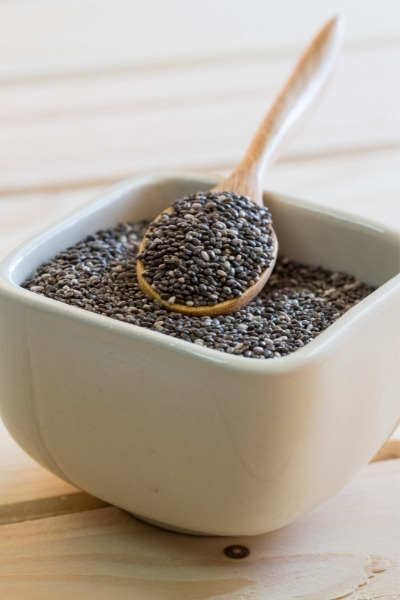
What’s more, a diet high in calcium and phosphorus helps prevent osteoporosis and other bone-related health problems from developing.
On the other hand, manganese helps your body build connective tissues, bones, blood-clotting factors, and sex hormones, making it another crucial mineral for your overall health.
Other studies also show that eating chia seeds can improve insulin sensitivity, which stabilizes your blood sugar levels.
As a result, chia seeds can be beneficial for preventing and treating type 2 diabetes.
Additionally, eating chia seeds with your meals can prevent rises in blood sugar levels after eating by slowing down the release of sugar from the food you eat.
Another crucial mineral that chia seeds can help you load up on is zinc. It can help reduce inflammation, boost your immune system, and lower the risk of age-related diseases.
Zinc may also be used to help with wound healing and the treatment of acne. Because of that, many people take zinc supplements, use products containing zinc, and add more zinc-rich foods to their diets.
What’s more, chia seeds can be mixed with water or yogurt and used as an anti-acne face mask.
Should you eat chia seeds when trying to lose weight?
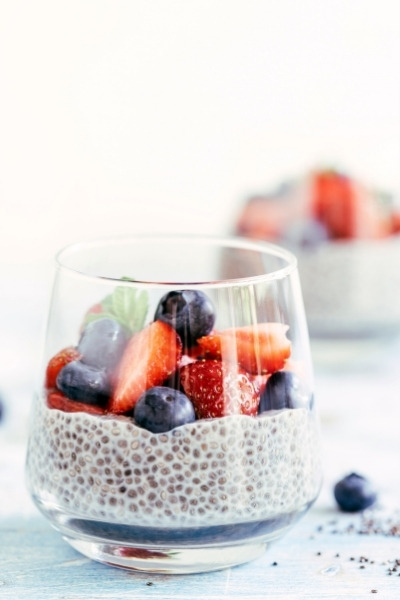
As you may know, eating many fiber-rich foods can help you lose weight. Chia seeds contain a lot of this nutrient, making them a great addition to a weight loss-friendly diet.
Fiber, especially the soluble kind found in chia seeds, expands in your stomach, slowing down digestion and helping you feel full after eating.
Some studies also show that soluble fiber can support appetite control, preventing overweight and obesity.
Chia seeds also contain some protein in a single serving. This nutrient is known to reduce appetite and food intake, contributing to weight loss.
For example, adding chia seeds to another source of protein, such as yogurt, can help you reduce the number of calories you’re consuming, leading to weight loss over time.
So, sprinkling some chia seeds on other dishes can be good for your weight loss goals.
On the other hand, some studies don’t back up the idea that eating chia seeds helps you lose weight.
This is because chia seeds are relatively high in calories and fat. So, if you eat too much throughout the day, you can get the opposite effect on your weight than the one you’re looking for.
But chia seeds are still very high in fiber, so if you can stick to a moderate serving, they can help you avoid overeating in-between meals.
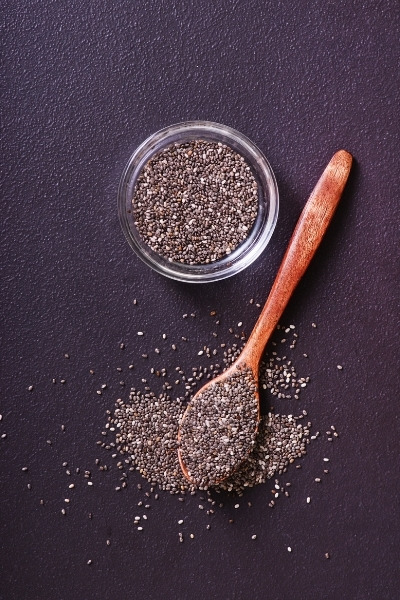
To make sure that you’re not taking too many calories from chia seeds, stick to a single serving of one or two tablespoons.
The best way to consume chia seeds is to add them to foods like smoothies, oatmeal, salads, yogurts, soups, or even homemade bread.
You can also add chia seeds to various baked goods to up the nutrition and fiber content of the final product.
Conclusion
There’s mixed research on whether chia seeds help you lose weight, but there are definitely many positives to eating these small seeds.
They’re high in fiber and contain powerful antioxidants, which contribute to a healthy digestive system.
This, in turn, can help with weight management. But chia seeds are still rather high in calories, so make sure to stick to a moderate serving.
